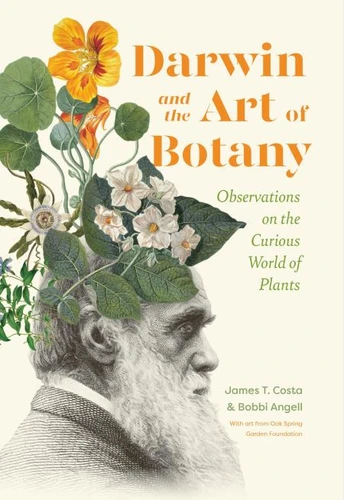Darwin and the Art of Botany. Observations on the Curious World of Plants
Par : ,Formats :
Disponible dans votre compte client Decitre ou Furet du Nord dès validation de votre commande. Le format ePub protégé est :
- Compatible avec une lecture sur My Vivlio (smartphone, tablette, ordinateur)
- Compatible avec une lecture sur liseuses Vivlio
- Pour les liseuses autres que Vivlio, vous devez utiliser le logiciel Adobe Digital Edition. Non compatible avec la lecture sur les liseuses Kindle, Remarkable et Sony
- Non compatible avec un achat hors France métropolitaine
 , qui est-ce ?
, qui est-ce ?Notre partenaire de plateforme de lecture numérique où vous retrouverez l'ensemble de vos ebooks gratuitement
Pour en savoir plus sur nos ebooks, consultez notre aide en ligne ici
- Nombre de pages380
- FormatePub
- ISBN978-1-64326-321-2
- EAN9781643263212
- Date de parution16/10/2023
- Protection num.Adobe DRM
- Infos supplémentairesepub
- ÉditeurTimber Press
Résumé
Uncover Darwin's most important writings about plants with this important collection featuring expert interpretations and rare illustrations. Charles Darwin is best known for his work on the evolution of animals, but in fact a large part of his contribution to the natural sciences is focused on plants. His observations are crucial to our modern understanding of everything from the amazing pollination process of orchids to the way that vines climb.
Darwin and the Art of Botany collects writings from six often overlooked texts devoted entirely to plants, and pairs each excerpt with beautiful botanical art from the library at the Oak Spring Garden Foundation, creating a gorgeously illustrated volume that never existed in Darwin's own lifetime, and hasn't since. Evolutionary botanist and science historian James Costa brings his expertise to each entry, situating Darwin's words in the context of the knowledge and research of the time.
The result is a new way of visualizing Darwin's work, and a greater understanding of the ways he's shaped our world.
Darwin and the Art of Botany collects writings from six often overlooked texts devoted entirely to plants, and pairs each excerpt with beautiful botanical art from the library at the Oak Spring Garden Foundation, creating a gorgeously illustrated volume that never existed in Darwin's own lifetime, and hasn't since. Evolutionary botanist and science historian James Costa brings his expertise to each entry, situating Darwin's words in the context of the knowledge and research of the time.
The result is a new way of visualizing Darwin's work, and a greater understanding of the ways he's shaped our world.



